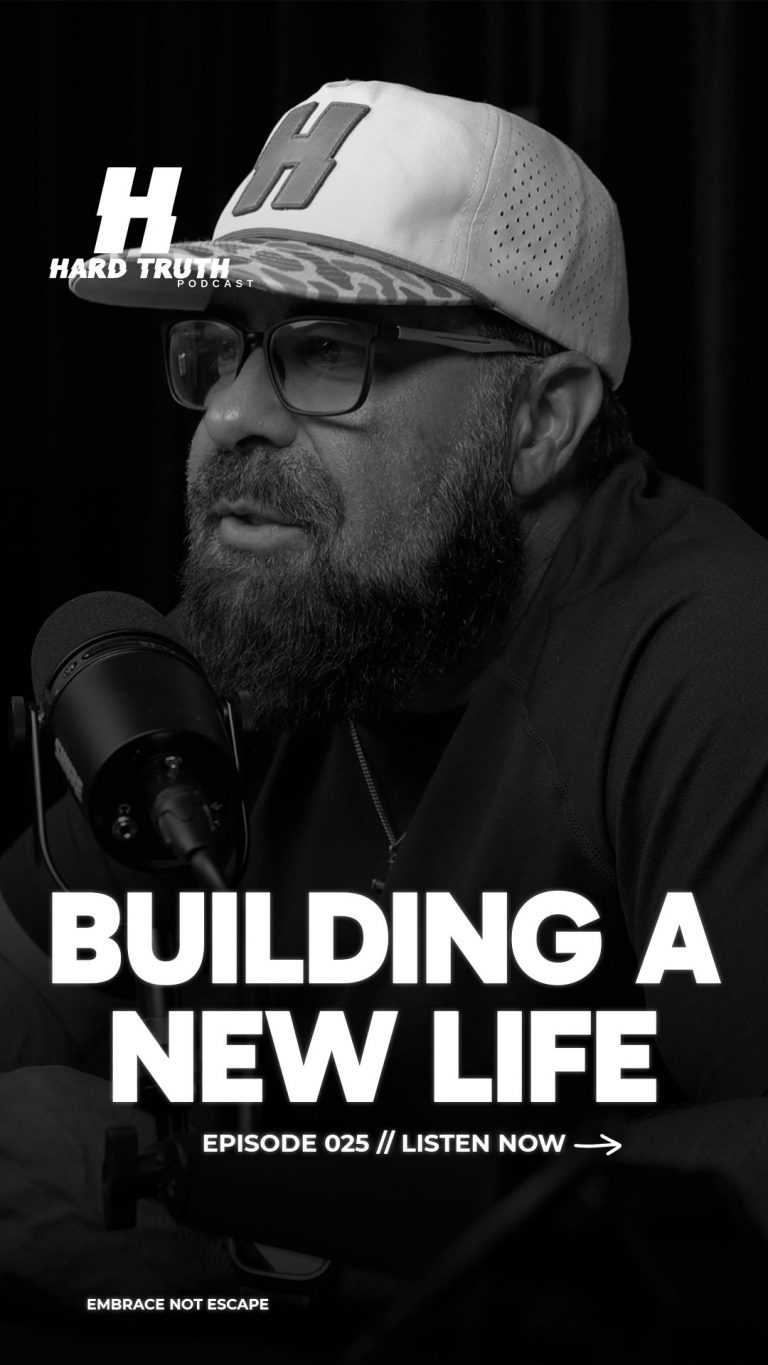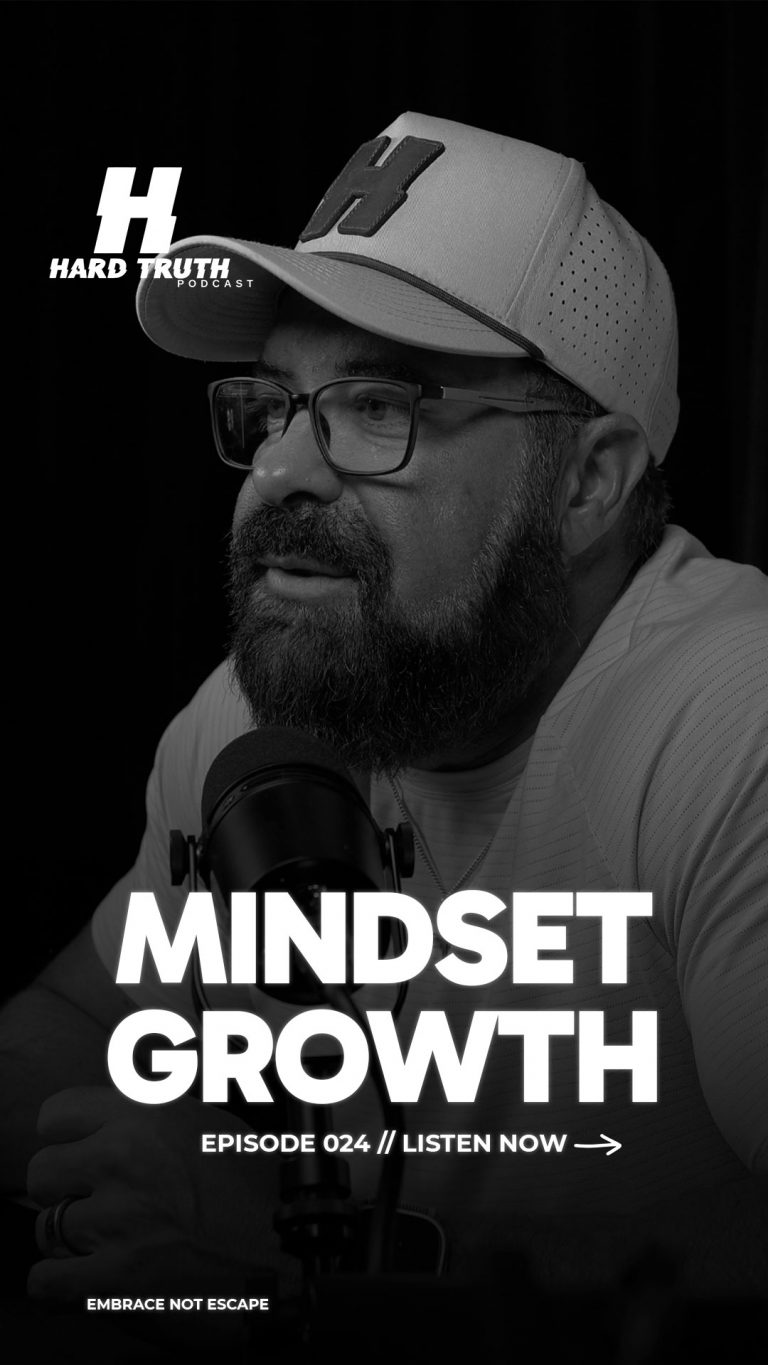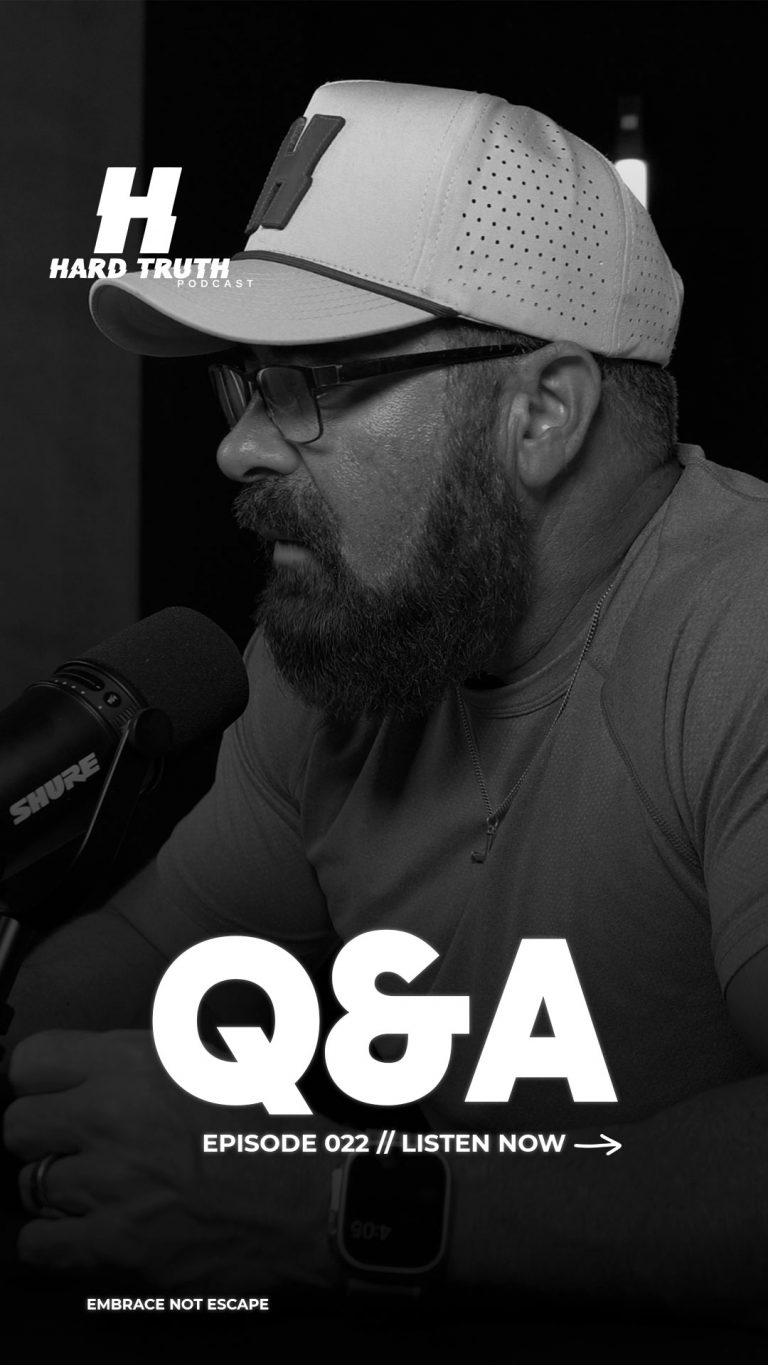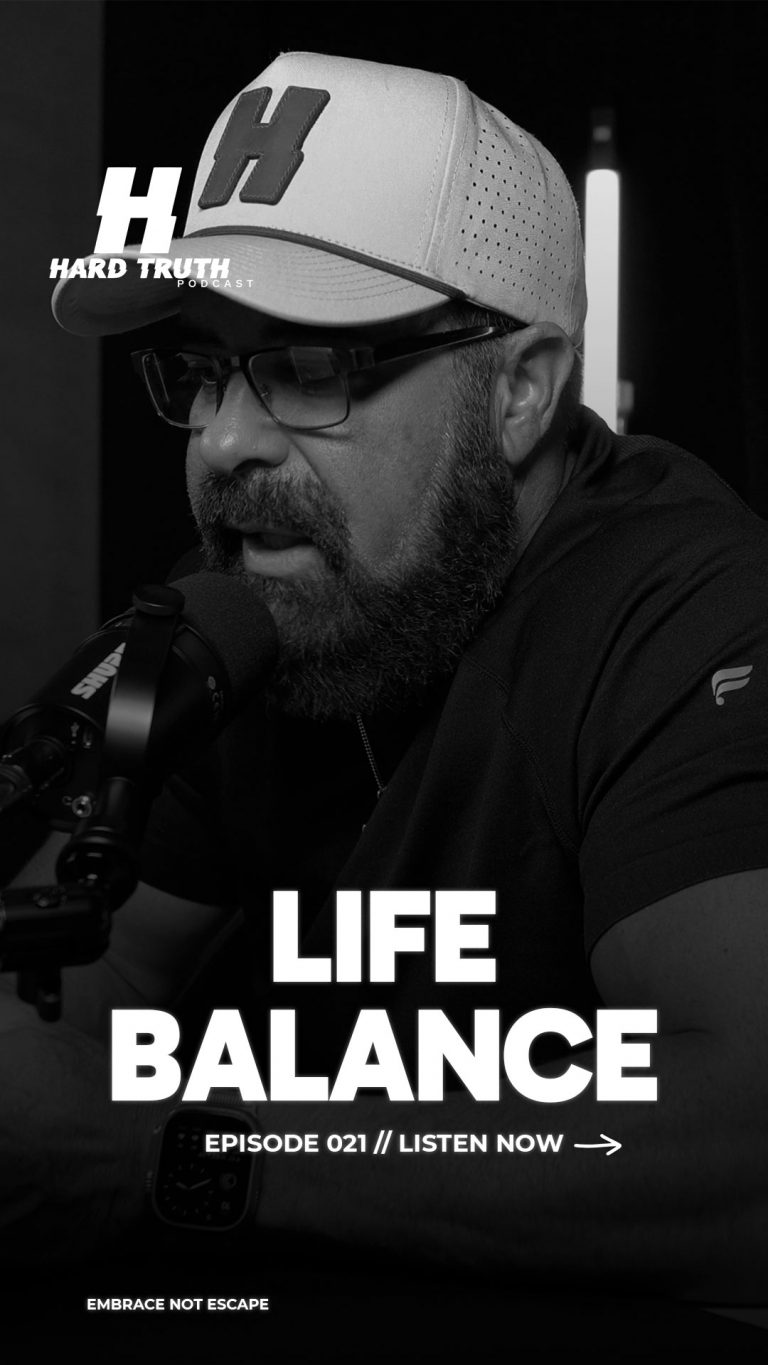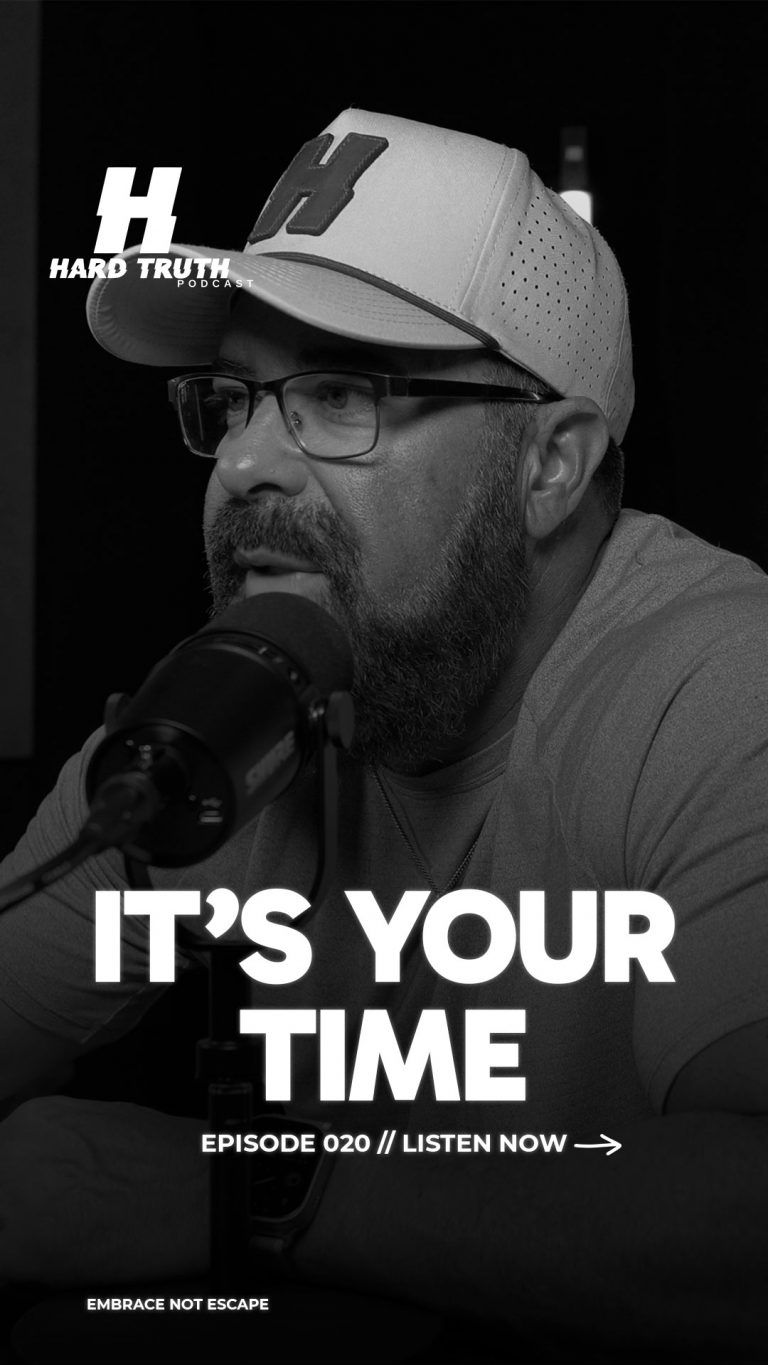Welcome to The Hard Truth Podcast.
My name is Jeremy Fouts, and today we are going to be talking about how to raise athletes and teach them life-long lessons.
10 tips that I’ve used in raising two young athletes, and I hope that you write these down and take them to heart and share this podcast with your son or daughter that is hopefully trying to push themselves to be an athlete.
How to Raise Athletes and Teach Them Lifelong Lessons.
I want you guys to listen.
Yes, I think this is gonna be essential for you to share with your teenage daughter, teenage son, maybe even a little bit younger than that, that really is involved in sports.
And I’ll say this, guys, I love athletics.
I love athletics.
I’ve always been an athlete.
I think that athletics is a great foundation, not only to teach your kids all the points that I’m gonna talk about, but I feel like it prepares them for the future.
I mean, I have over and over watched people that go into the marketplace after college or even before college, and they succeed at a high level because of what they learned in athletics.
So, that’s the reason I’m gonna share with you this first point, which is athletics is a foundation to teach your kids how to handle adversity, create a strong mind, get stronger physically, and how important nutrition is to achieve their goals.
Now, I wanna talk just to the parents first and let them know that this stat has been proven over and over.
0.023% make it to professional sports.
So now, the reason I’m saying that I’m sharing this with parents is there’s two important parts of this.
Number one, you have to accept the fact that my son or daughter might not play professional sports.
And that helps you keep everything in reality, but understand what it’s going to teach them and prepare them for the future is most important.
That’s why we are doing what we are doing on a daily basis.
And I’m going to dive into these points and really make these make sense.
But the reason I said only for you to know this stat of 0.023%, make it to the pros, the worst thing you can do is share that stat with your 10, 11, 12-year-old boy or daughter and basically hammer down saying you’ll never make it to professional sports.
It’s one of those things that I tell all the parents that I’m friends with, is if your son or daughter want to be the best, you have to tell them that they can be the best.
But here are the things that we are going to have to do in order to be the best.
We’re not gonna say you can’t make it to pros.
We’re gonna say if you wanna make it to the highest level possible, whether it be gymnastics, diving, football, baseball, baseball, basketball, we can achieve that.
But here are the things that we are going to do on a daily basis in order to be able to make that happen.
If for some reason, injury or maybe they just wasn’t good enough, but you prepared them all the way through their senior year, guys, I promise you the life lessons that they will learn in athletics will catapult them over the rest of the competition in the marketplace.
They’ll succeed at a higher level in college.
They will get better jobs out of college.
They’re going to be better parents.
They’re going to be better spouses.
And trust me on that, this is a foundation.
Now, I mentioned that it’s going to teach them how to handle adversity.
One of the best things for your kid is to be able to handle adversity.
You have to help them through that process.
No one likes to lose.
No one likes to strike out.
No one likes to get tackled on the two yard line.
No one likes to miss the three point shot at the end of the game, but it’s going to happen.
We gotta be able to handle that adversity.
We have to teach the strong mindset, how to be able to deal with different things that come to us that maybe is not in our control, but we teach them how to be able to control the things that is in our control, that that’s in our control, and how to get that mind stronger through reading books, dealing with adversity, all the different things that makes a stronger mind.
And then the nutrition part, I’m gonna talk about that as we get through these points.
You have to teach them the important role of nutrition in order to achieve their goals.
So let’s start off by talking about teaching them how to train, you know, this is one of the things that I see over and over.
And to let you guys know, I’ve got a 16, about to be a 17 year old, it’s about to be a junior in high school that is on a track to be recruited to play baseball in college.
That’s what he wants to do.
And that’s what we are focused on right now through talking to different colleges, to training, all the different things I’m gonna talk to you about.
I also have a 14 year old be 15 in August that’s gonna be going into his freshman year.
And he is a football athlete, quarterback.
He’s a national lacrosse player.
He also plays baseball and he did play basketball, but now he dropped out and he also runs track.
So obviously we’re probably gonna trim some of those sports back as we start focusing later on.
But I’m telling you all these things that I’m gonna be sharing with you is what I have dealt with through life experiences.
And it’s very, very important.
I can tell you real stories, and I’m going to share some of those today of why I put these points in here.
So teach them how to train.
Your coach can teach you the fundamentals, but it’s your job as a parent to help them work on them.
I have over and over, parents call me up, say, well, our coach is horrible.
And I’m like, what do you mean your coach is horrible?
We’ll only have practice one day a week or two days a week.
You know, that’s okay.
Well, my player struck out, my son struck out, my son missed 15 ground balls.
Well, here’s the way we handle that.
Your coach can coach 15 different kids at an hour and a half practice, but he cannot spend individual time.
It’s not his job to make sure Johnny does not strike out or Susie does not do good at the ground balls and softball.
It’s your job as parent saying, what did coach work with you on today?
He kept working with me dad on ground balls and keeping the ball in front.
And whatever the situation, say, okay, we’re gonna go out to the field and we’re gonna hit you 50 ground balls to work on those same things.
You know what?
We’re gonna be getting 50 cuts in off the tee and some soft toss every night.
We’re gonna be doing these things.
Teach your kid how to train.
You know, my son that plays lacrosse, you know, if we see that he’s winded in a game, guess what we’re working on next week?
We’re working on conditioning.
We’re putting the miles in.
But your coach for your kids is going to be able to teach them the fundamentals, teach them the game, but you have to teach your kid how to train in order to be able to be the best on his team.
It’s not the coach’s job to write him out a training schedule.
Whatever he needs to work on as parents, we are the assistant coach.
We are the ones that say, our son, our daughter, let’s do a good self-evaluation.
Here’s about where they are, and here’s what we need to work on.
Now let’s get together a.
Plan and let’s train to get to be the best that we can be.
I see over and over in baseball tournaments, lacrosse tournaments, all these different things.
It’s phenomenal to me.
It’s amazing for me to see the parents in between games.
They bring their kids nothing but solid sugar.
They bring their kids nothing but Coca-Cola’s.
And then the kid has a sugar spike like crazy, and then he’s lethargic and don’t want to perform.
You’re building an athlete that needs to know how that fuel is either going to make them better or it’s not, depending on the type of fuel that we put in them.
In between lacrosse games, my son is not only hydrating with core beef hydrate, which a lot of the professional teams are using right now, but also he’s putting protein or collagen and protein, mixing it in a bottle of water.
It’s a pre-package.
He’s putting protein into his muscles, the branch chain amino acids to give those muscles fuel.
But you have to teach your kids nutrition.
You know, Pearson, when he’s pitching, my oldest, he’s nibbling on watermelons, watermelon.
He’s nibbling on grapes, the good sugars.
Teach them the good proteins, the good carbs, the good sugars.
Don’t just be giving them Gatorade and sodas.
Teach them also that if we have a big game tournaments this weekend, number one, we don’t ever have sodas in our house.
But we’re not going to be, you know, we’re not starting to prepare for Saturday Day of Games on Saturday, start eating correctly.
This is a weeklong project that we are making sure they have plenty of noodles and carbs the night before on Friday.
We’re making sure that they have enough protein.
We’re making sure that they do not have a lot of caffeine.
Only caffeine they have is our energy product that Corbett sells right before a game.
And we make sure that they hydrate after that.
But it’s so important for you to understand how to educate your kids the power of nutrition, you know, and something else that I really have seen a lot, heard a lot.
I was talking to a dad yesterday, and his son is very little for his age.
He’s 14.
And my son is pretty good size for his age.
And he was talking about, you know, what do I need to do to get my son ready for high school?
And I said, we got to get him stronger and we’ve got to get him bigger.
And he’s like, well, he’s not really lifting weights.
I’m like, well, he’s going to have to get in the weight room.
And I said, how about his nutrition?
Is he getting enough protein in?
He needs about one gram of protein per his body weight right now.
He said, no, he really don’t like to eat a lot of protein.
He just likes eating cheese pizza and mac and cheese and a little bit of chicken nuggets.
And I stopped him and I said, OK, do you agree that training is important?
He said, absolutely.
I said, do you agree that training is going to make you faster, stronger, all these things?
He said, absolutely.
And I said, nutrition is probably a larger percentage of making a difference than even the training.
And he looked at me like I was crazy.
And I’m like, you’ve got to teach your kid, number one, the right things to fuel his body.
But number two, you can’t say, OK, you know, just because you’re not hungry, we’re not going to eat.
You’ve got to say, if you want to grow, you need to have 75 grams of carbs or 75 grams of protein today.
What meals are we going to do that with?
What do you want to eat?
Let me go in and prep your meals.
You know, you need this many carbs.
You need this many fats.
And you’re not going to sit down and make him an eight ounce filet that he needs.
And he ate three bites and says, Dad, I’m not hungry no more.
You say, son, if you want to be the best athlete that you can be, we’re going to have to stretch the stomach.
We’re going to have to push ourselves to eat the amount of protein that we need.
So you’ve got to teach your kids.
You can’t just want to hit a baseball or be the best in sports and not do the training and not fuel your body with the right nutrition.
Trust me, nutrition is king.
And protein, I don’t know if you have any teenage kids, but protein is huge in their life of increasing their testosterone levels, helping them get an advantage over the other kids as far as having the strength.
But make sure they understand when they need the proteins, the carbs, and the right sugars and the good fats to be able to fuel their body properly.
Next is teach them the importance of sportsmanship.
Learn how to respect the game, your teammates, the omp’s, the coaches, and the other team.
I teach my boys.
You look them in the eye, you shake their hand, your yes sir, no sir.
You know, if the omp makes a bad call, you walk away, it’s going to happen at all levels.
If the ref makes a bad call at your girls’ basketball game, it’s going to happen at all levels.
Smile, walk away, and you’re going to get another shot.
You know, when you get beat by another team, you shake their hand, you congratulate them, and you teach your kid to say, in the back of my mind, we’re going to get them next time.
If your coach gets on to them, you look them in the eye and say, yes, sir, coach, I’m going to give you my best effort the next time.
But it’s so important to teach your kid the sportsmanship.
You know, and you say, well, why is this so important?
Well, number one, it’s going to give them more opportunities because coaches are going to see that and say, I want that boy or I want that girl on my team.
The way he teaches or the way he treats his teammates, the way he handles adversity, the way he looks me in the eye and takes good direction.
Now, again, as I said at the very first of this podcast, this is going to transfer into their later life.
That’s why I love it.
I mean, you’re not going to go into a corporate America position.
And if you don’t know how to how to take criticism, if you don’t know how to work with others properly, if you don’t know how to handle a situation that maybe a job proposal didn’t go through, and you want to blame someone else instead of saying, that’s OK, we’re going to get it next time.
All these things that you’re teaching them, remember, it’s not just for the athletics.
It’s preparing them for the game of life, which they’re going to play a lot longer than just the athletic sport.
Next is teach them they need to try to be the best they can be for what it will do for them, not just trying to make mom or dad happy.
I’m big on this.
I coach my boys all the way up till they was 12, and I said, boys, I did a good job of laying a foundation.
From now on, dad’s going to sit in the stands, and dad will not say a word.
He’ll clap if you do good.
He’ll be there to help you if you do bad.
We’ll watch the video.
We’ll figure out what we need to work on.
But here’s what I told him.
I said, from now on, your job is to be the best you can be for what it will make of you as an individual, not just to make mom or dad happy.
I’ve saw it over and over in every sports that my boys play in, and the minute that the kid does bad, they look at mom and dad with fear on their face.
The dad or the mom yells in the stands over and over, you know, when they struck out, I can’t believe you struck out.
Oh, my gosh, you’re horrible.
All these different things.
And basically, you are putting a glass ceiling on what your kid can accomplish because of your behavior.
You’ve got to understand you want that kid to do good.
All of us want our kids to do good, but it’s not about them doing good for you can put on Facebook that your little Johnny or little Susie did awesome.
It’s all about how we can develop this young man, this young lady, and becoming the person that God made them to be.
So the earlier you can teach your kids that we are going to train, we are going to be sportsmanship examples.
We’re going to have the right nutrition, but you know what?
Fail or succeed.
Remember, this is about making you have that confidence that when you walk onto the field, you’re going to give it 100%, and you’re not doing it for mom and dad.
You’re doing it for you and the person that you are going to become.
That is very, very crucial.
So parents, if you’re listening to this, make sure you have an awareness of your behavior.
And remember, it’s not for you can brag on your kid on Facebook.
It’s about how we can develop this kid into being the best that they can be.
Next is the importance of sleep and recovery.
You know, sleep, I would tell you, the textbook says that a minimum of eight hours of sleep, and that’s just the minimum of a teenage kid.
And I would really encourage probably 10 hours to 11 hours of sleep.
Some studies have been proven 12 hours of sleep.
Now, the reason that you have to teach your kid how to train and how to eat properly is because they’re not going to have a good sleep pattern unless they train and exhaust themselves.
They put the right fuel in their body for the hormones to regulate, and then they get good sleep.
Sleep is where the recovery process happens.
The growth is going to happen during sleep, but it only happens if they have the right nutrition and if they train properly.
So what I mean by that, let’s say your teenage daughter or son wants to be an athlete, and this summer, they sleep till 11.
They get up, they eat mac and cheese, and they eat a little bit of cheese pizza, and then they jump on the video games, and then they come back, and they eat maybe a half a cheeseburger, and then they get ready for bed, and they go to play the video games, and then they stay up till midnight or one playing video games.
They’re not going to be tired, because they didn’t produce no energy that day.
They didn’t take the right food in that day.
So it’s going to be a continuous cycle.
They’re going to get up again at 11 o’clock the next day.
They’re not going to train.
So therefore, they’re not going to want to eat a lot of food, because they didn’t put out no energy.
They don’t have the right food.
It’s going to be a vicious cycle.
And every day, another athlete is doing the right things and is getting ahead of your son or your daughter.
The importance of sleep and recovery is big.
Next is being a well-rounded leader, not just succeeding on the field, but also in academics, community service, home chores, being a teammate everywhere you go, being a leader everywhere you go.
You know what?
School today, there is no reason why your athlete should not have straight A’s.
My boys, they know I push this real hard because if they bring home a B or C, nine times out of ten, it’s not because they was not able to.
It’s because they didn’t put the effort in.
And if you teach your kids, look, a good leader and a well-rounded athlete is not good just on the field.
They are good at opening the door for the lady behind them.
They are good at picking up the trash that’s not theirs.
They’re being a leader in the classroom.
When someone is getting picked on, they stand up for them.
They’re the first one to treat that substitute teacher everyone’s making fun of and giving a hard time to show her respect or show him respect.
They’re the first one to tell the class, that’s not the way that we behave.
But if you will teach your kids that well-rounded athletes are leaders everywhere they go, if mom or dad teaches, says, take out the trash and they give me an attitude, I set them down and we talk about it and say, look, you’re living here.
Your job is to be the best you can be.
My job is to be the best parent I can be.
This is a team atmosphere at home with mom and dad and siblings, and every one of us have to pull our weight.
Same way as on a baseball field, same way as on a basketball field, but you teach them a well-rounded athlete is not just good on the field.
He or she is a leader everywhere they go.
Next is social media.
What is your kid interacting with?
Now, if you have a 10, 11, 12-year-old, and I know I’ve got an audience that have all range of kids, and the reason I wanted to do this podcast, these questions come to me often.
I’ve got a young lady and her husband, they have two small boys.
I know they’re listening to this podcast.
Six and seven, eight-year-old, that range that love baseball.
Well, it’s good.
They’re not going to have to teach them about social media right now.
But if they can teach them how to train, and obviously a six, seven-year-old is not going to train like a 13 to 16-year-old.
But if they can teach them that foundation now, and the nutrition process of what we need to put in our body, all those things, they’re going to be way ahead.
But this is more towards the 14, 15, 16-year-old.
The first thing that a scout does is he looks at your social media.
The first thing that tells me about a kid’s character and a kid’s involvement, as far as from a mindset standpoint, is on their social media.
So you’ve got to talk to those student athletes.
You know what?
We can’t be good in the classroom, good at home, and good on the field.
And then we jump on social media, and we’re looking and interacting with things that does not align with that.
That will ruin your future.
And you have to have those conversations with them if they are wanting to be the best that they can be.
Number nine is learn how to compete, not compare.
You know, every kid, even if you did everything that I’m telling you today, from the training, nutrition, and the sleep, and you as a parent are taking it on a responsibility to work with them outside of their regular practices.
All those things, still, here’s what’s going to happen.
Some kids are going to develop faster than others.
That’s the way it happens.
I mean, we live in Prosper, Texas, a big 6A school, and in junior high, middle school, A team and B team, the size difference is phenomenal.
And most of the time, though, you have some kids that are a little bit delayed in puberty, and that’s really the large difference.
Now, there might be a lot of reasoning why, might be a lot of things that we could do from a nutrition standpoint, sleep standpoint, to increase that, but overall, some kids develop faster than others.
You, as a parent, have to help your kid understand that, you know what, you are here, and we are going to get here, and we don’t look at someone on the team that maybe is four times better and compare.
We look and say, we are going to compete to be the best we can be.
So as we continue to develop and control what we can control, then it’s all going to happen when the smoke clears, and we will be the best.
And you’ve got to teach your kids that.
Don’t let them get all concerned, and oh, poor, pitiful me, I’m not as big as these other kids, I’m not as strong as these other kids.
We got to say, are we controlling what we can control every day?
Are we tracking our carbs?
Are we tracking our fats?
Are we tracking our protein?
Are we tracking our hydration?
Are we tracking our training?
Are we tracking our sleep?
And if every day we are tracking these and meeting our goals, we are going to get to where we want to get to.
Number 10 is learn how to take constructive criticism.
Your kids have got to understand that as they get older, the criticism is going to be more intense.
And that’s why I’m always big, and I have boys, I don’t have no girls, but I’m always big on teaching my boys how to be tough mentally and letting them know that you know what, you are going to have a coach that gets in your face.
And your job is to control your emotions and say, yes, sir, I’m going to give you my best effort next time.
Thank you for pointing that out.
You’ve got to tell your kids that they are going to be having some criticism come their way when they are putting themselves out there.
They are performing at a high level in an athletic sport.
But again, the reason I love that is they’re learning this now.
So when they go to the marketplace and they’re working at a high position in corporate America, then when they have something go wrong and the boss calls them into the office, they’re going to know how to handle it.
They’re going to say, yes, sir, no, sir.
They’re going to say, yes, ma’am, no, ma’am.
I understand that.
That was that was my neglect, and I will give you my best effort moving on.
But understand you have to let your kids know that is okay to take constructive criticism.
And what we need to do is let this be a learning experience.
So, guys, I hope that today’s podcast is going to help you as a parent prepare your son or daughter to be the athlete that they want to be, not just what you want them to be, but what they want to be.
But remember as a parent that we have a large role in order for this to happen, and it’s not just about them making it to Major League Sports.
Yes, we want them all to.
My kids may or may not.
I don’t know.
But we’re going to follow all these steps and push as best we can be.
But we also remember that it’s who it’s going to make them is why we are playing the game of athletics to prepare them for the game of life.
I hope you enjoy today’s podcast.
Share with your friends or family.
Don’t tell me that you don’t know anybody would want to hear this podcast because I feel these questions and have these conversations on a daily basis on the fields and share it with your friends and family.
Share my social media, jeremyfouts.com as well.
Thank you guys for joining The Hard Truth Podcast.

